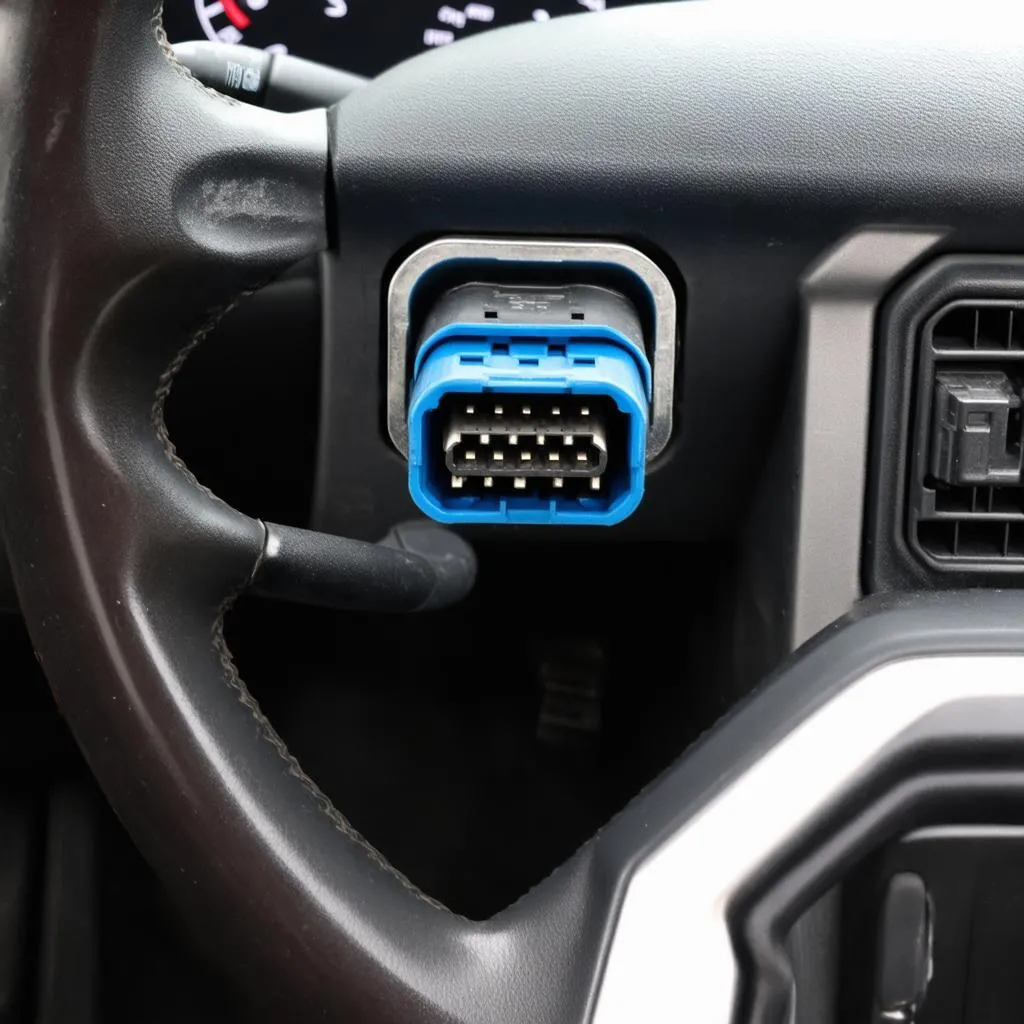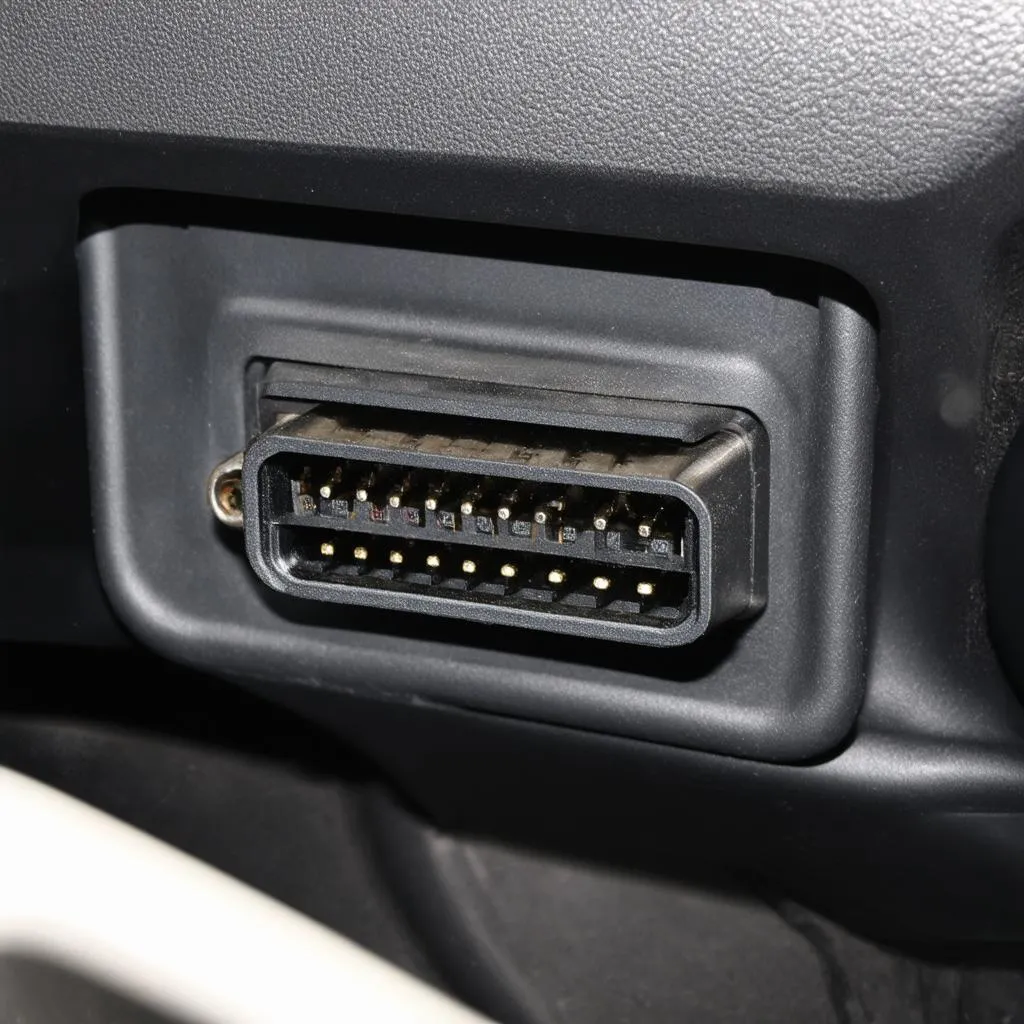“A stitch in time saves nine,” as the old adage goes. This proverb applies perfectly to car maintenance, especially when it comes to the OBD system, which is like the car’s health monitor. Imagine your Ford F150 suddenly refusing to talk to your diagnostics tool – that’s a feeling of frustration, isn’t it? This guide will equip you with the knowledge and steps to troubleshoot a malfunctioning OBD system on your Ford F150.
Understanding the Ford F150 OBD Problem
Let’s start by understanding what the OBD system is and why it’s crucial to your F150’s well-being. The On-Board Diagnostics (OBD) system is a computer-based system that monitors the performance of your vehicle’s engine and emissions systems. It diagnoses problems and stores fault codes, which can be retrieved using a scan tool, like a dealer scanner.
Think of it as a vital link between you and your truck’s health. It tells you when something’s amiss, letting you address issues before they escalate into bigger problems. Now, when the OBD system on your Ford F150 isn’t working, it’s like the doctor refusing to give you a diagnosis. You’re left wondering what’s wrong and how to fix it.
From a technical perspective, a non-functioning OBD system can be caused by a variety of factors. Here’s a breakdown:
1. Faulty OBD Connector: The OBD connector, usually located beneath the steering wheel, is the gateway to your F150’s diagnostics data. A corroded, damaged, or loose connector can disrupt the communication flow.
2. Defective OBD-II Port: The OBD-II port itself might have issues. It’s essential to check if the port is secure and free from any debris or damage.
3. Power Supply Problems: A weak battery or a faulty fuse can impact the power supply to the OBD system, leading to communication failures.
4. Wiring Issues: The OBD system relies on a network of wires to transmit data. Damaged or broken wires can cause a break in communication.
5. Damaged Control Module: In some cases, the engine control module (ECM) responsible for managing the OBD system may be faulty, rendering the system inoperative.
6. Software Glitch: The OBD system software may encounter a glitch or error, leading to communication issues.
7. Vehicle Year and Model Compatibility: Ensure your scanner is compatible with your F150’s year and model. Older vehicles might have a different OBD protocol than newer ones.
8. Interfering Electronic Devices: External electronic devices, like mobile phone chargers, can interfere with the OBD system’s communication.
Troubleshooting: Ford F150 Obd Not Working
Don’t panic; a malfunctioning OBD system isn’t always a major problem. Here’s a step-by-step guide to troubleshoot and resolve the issue.
1. Check the OBD Connector: Start by examining the OBD connector under your steering wheel. Check if it’s securely in place, free from corrosion, and not damaged. You can also try cleaning the connector with a contact cleaner to ensure a clean connection.
2. Inspect the OBD-II Port: Ensure the OBD-II port itself is free from any debris or obstructions. Check if it’s securely in place and not damaged.
3. Verify Power Supply: Make sure your battery has sufficient charge. Also, check the fuse box for any blown fuses related to the OBD system.
4. Examine the Wiring: Look for any visible signs of damage or wear on the wires connecting to the OBD connector and the ECM.
5. Scanner Compatibility: Ensure your diagnostics tool is compatible with your F150’s year and model. If you’re using an older scanner, it may not support the OBD protocol of your vehicle.
6. Eliminate Interfering Devices: Disconnect any external electronic devices connected to your car and try connecting your scanner again.
7. Reset the ECM: Try resetting the engine control module (ECM) by disconnecting the battery for a few minutes. This can sometimes resolve software glitches.
8. Seek Professional Help: If you’ve exhausted all troubleshooting steps, it’s time to consult a qualified automotive technician. They can diagnose the issue accurately and perform necessary repairs.
Additional Tips and Information
1. OBD Codes and Meaning: When your OBD system is working, it can help you decipher the meaning of specific error codes. For example, P0012 could indicate a camshaft position sensor issue, while P054C might signify a problem with the exhaust gas temperature sensor.
2. Ford F150 OBD Port Location: The OBD-II port on your Ford F150 is usually located under the steering wheel. However, it’s essential to consult your owner’s manual or search online for specific instructions based on your F150’s year and model.
3. OBD-I vs. OBD-II: Earlier Ford F150 models might use the OBD-I system, while later models use OBD-II. Understanding this difference is crucial when choosing a diagnostics tool.
4. Dealer Scanners for European Cars: If you’re working on European vehicles, specialized dealer scanners are recommended. These scanners offer a broader range of functions, including access to specific manufacturer data.
5. Seeking Help from Professionals: If you’re unsure about any aspect of troubleshooting or feel overwhelmed, seeking assistance from a certified automotive technician is highly recommended. They possess the expertise and tools to diagnose and repair complex automotive issues.
Frequently Asked Questions
- “What are the most common OBD problems in Ford F150s?” Common problems include faulty OBD connectors, wiring issues, and power supply problems.
- “How can I identify a faulty OBD connector?” Look for signs of corrosion, damage, or loose connections. You can also try cleaning the connector with a contact cleaner.
- “Can I fix a faulty OBD connector myself?” In some cases, cleaning the connector or tightening loose connections might resolve the issue. However, if the connector is severely damaged, you’ll need to replace it.
Conclusion
Troubleshooting a malfunctioning OBD system on your Ford F150 can be a challenging but rewarding task. By following these steps and seeking professional assistance when needed, you can ensure your truck’s health is monitored effectively.
Remember, preventive maintenance and timely repairs can prevent more significant problems down the road. If you have any questions or concerns, feel free to leave a comment below. You can also reach out to our team for expert assistance.
 OBD connector Ford F150
OBD connector Ford F150
 Ford F150 OBD port
Ford F150 OBD port
Whatsapp: +84767531508